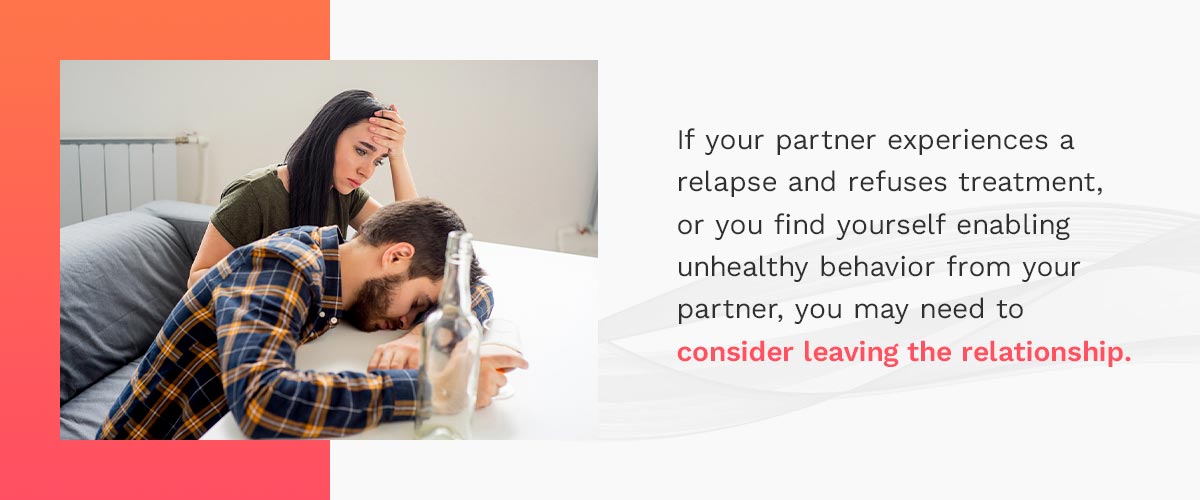What to Expect When Dating a Recovering Addict
Dating a person who is recovering from drug or alcohol use requires some awareness. It doesn’t have to be a
relationship deal breaker, but you may want to consider some additional things before starting or ending a
relationship with a former drug addict. There is a stigma attached to the disease of addiction, but many people
recover and find ways to live a sober life.
How do I make the first step to getting someone help?
It’s hard to watch a loved one suffer from addiction, especially when they deny there’s a problem or refuse to get help. Often, a well-intentioned friend or family member trying to force the situation can end up making it worse. When you’re ready to sit down and speak with your loved one, avoid sounding condescending or judgmental. Instead, let them know that you’re aware of the problem and offer your support. Outline their options for treatment and encourage them to seek help.
We are available to answer any questions you may have about the treatment process or getting your loved one prepared to enter our treatment center. We are available 24/7 to answer any questions you play have, just give us a call:
Call us at (727)498-6498
Email us at info@transformationsbythegulf.com
Benefits and Challenges of Dating a Recovering Drug Addict
A person who works hard toward sobriety may be healthier than individuals who have never experienced addiction.
Recovery requires an individual to become self-aware through therapy and treatment. They are often active in 12-step
programs and closely involved in continuing care.
A person in recovery may attend regular therapy sessions and should understand how to practice healthy coping
strategies to stay sober. A past addiction combined with healthy lifestyle changes can lead to incredible growth if a
person does the work to achieve and maintain sobriety.
Dating someone who attends therapy and works on their mental and physical health can lead to a very healthy
relationship. However, dating a person recovering from substance use can also present challenges for both people in
the relationship. Remember that relapse is always possible at any stage of recovery, and it is up to the person in
recovery to do the work necessary to prevent relapse.
A person recovering from substance use may experience the following:
- Irritability
- Isolating behaviors
- Substance cravings
- Mental health challenges
- Health complications caused by past drug use
- Disinterest in new experiences, hobbies or their partner
- Vulnerability to other addictions such as sex or gambling addiction
How to Help Your Significant Other Through Addiction Recovery
You could someday find yourself wondering how to support a significant other through addiction recovery. You may begin
dating an addict, start a relationship with someone who relapses later or discover your spouse becoming addicted to
drugs years into a marriage.
In any of these situations, you must remember that your mental and physical health are critical. You cannot heal,
“fix” or force your partner through recovery. However, if it is safe to do so, you can offer support as they do the
recovery work they need to do. You can help your partner through addiction recovery in the following ways:
Learn About the Signs of Addiction and Avoid Enabling
Eliminating or reducing the consequences of another person’s unwanted or unhealthy behaviors is enabling. Even if you
enable your partner’s behavior with good intentions, it can significantly harm them, yourself and the relationship. Eliminating repercussions encourages a person to continue unhealthy behaviors.
If your significant other manipulates you or others, lies to you or asks you to lie for them because they are using a
substance, it’s important to avoid enabling them. Let them experience the consequences of their actions, and let them
know that you do not accept their behavior. Learn the signs of addiction so you recognize when they occur, and encourage your partner to seek help when they exhibit these signs.
Set Boundaries in the Relationship
Boundaries matter in any relationship, but they are essential when you are in a relationship involving past drug
addiction. Let your significant other know what your boundaries and expectations are, and plan what you will do if
they cross your boundaries. You may need to say “no” at times, and you may need to walk away if their actions affect
your mental or physical health.
Remember That You Are Not Responsible for Their Actions
Only your significant other is responsible for their actions, and you cannot control their behaviors. Maintain a
healthy mindset by remembering that you are not responsible for your loved one. While you can show your support for
them, you must also realize that they are responsible for themselves.
Seek counseling or therapy if you feel stressed or overwhelmed trying to control or “fix” your partner. Remember that
it is not your fault if they relapse or struggle in their recovery.
Attend Couples Counseling
Attending couples counseling is an excellent way to maintain a healthy relationship. A therapist can help you and your
partner set healthy boundaries, develop healthy communication skills and recognize any issues you need to address.
Attending therapy separately and alone can help you care for your mental health, and it can help your partner care for
their mental health as well.
Seek Help if Needed.
If your loved one relapses, it can affect your mental health. Seek help from a professional such as a therapist if
your significant other’s addiction affects you in the following ways:
- Sleeplessness
- Poor concentration
- Constantly worrying about your significant other
- Weight changes due to overeating or not eating enough.
- Feelings of sadness, depression, hopelessness, anger or rage
- Inconsistent or poor relationships with your friends and family
 When to Consider Leaving a Partner
When to Consider Leaving a Partner
Past addiction doesn’t have to be an absolute deal breaker. However, some situations can lead to an unhealthy
relationship. If your partner experiences a relapse and refuses treatment, or you find yourself enabling unhealthy behavior from your partner, you may need to consider leaving the relationship. What to Expect When Dating a Recovering Addict.
Staying Healthy When Dating Someone Recovering from Addiction
It can be easy to focus on your partner’s health and well-being when they are recovering from drugs or alcohol.
addiction. However, you must take care of yourself and focus on your well-being. Self-care is necessary to help you.
stay healthy, cope with stress and prevent negative reactions to future stress.
While you can support your partner in healthy ways, it’s also important to practice self-care in the following ways:
- Eat healthily.
- Take time to exercise.
- Set healthy boundaries.
- Rest and get enough sleep each night.
- Care for your mental health through therapy, meditation or support groups
- Maintain healthy relationships with friends and family outside your romantic relationship.
Relapses: When to Talk About Additional Treatment Options
For you and your significant other to have a healthy relationship, your partner must have a strong relapse prevention plan. They should be taking healthy steps to abstain from drugs and alcohol. These steps can include a 12-step program, therapy, healthy coping strategies and healthy lifestyle habits. You and your partner can pursue and maintain a healthy relationship if they do the work necessary to recover and maintain sobriety.
Relapse is always possible in recovery, and 40% to 60% of individuals in recovery will experience a relapse. Your partner should have a plan in place in case relapse occurs. To be prepared, they can list potential rehabilitation and treatment programs to contact if they relapse. If your partner uses any amount of a substance during recovery, they must seek treatment as soon as possible.
If you or someone you know would like to know more about Transformations by the Gulf Substance Abuse Treatment Center Give us a Call 24/7 (727)498-6498
The success of a person’s recovery depends on the level of personalized treatment provided. It is important to find an addiction treatment program that works. When we say our treatment is individualized, we mean that we craft a program that is tailored to address the client’s unique physical, mental and emotional needs.
In the client’s first 24 hours with us, we’ll evaluate their current state and work to understand what challenges they need to overcome. They’ll also have an initial session with our doctor and meet with one of our licensed mental health professionals.
After the initial evaluations, we’ll design a treatment plan with the sole mission of helping the client overcome and heal from addiction. Their program will focus on things such as:
- Addressing and Identifying root causes of addiction.
- Creating a support system.
- Developing healthy stress management techniques.
- Eliminating Substance use.
- Learning how to communicate emotions effectively.
- Maintaining a healthier lifestyle.
- Repairing damaged relationships.
Are you struggling with addiction and want to learn more? Visit Yelp to read our reviews or check out our page on addiction treatments.
Our Facility is near the beach and offers a comfortable setting for substance abuse treatment and recovery.
What a Day is Like in Our Treatment Facility.
Why Transformations by the Gulf?
 When to Consider Leaving a Partner
When to Consider Leaving a Partner